Ditapis dengan
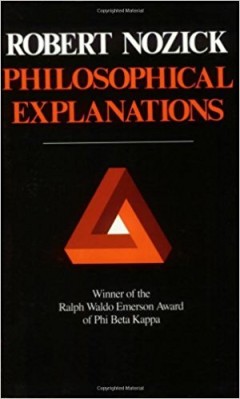
Philosophical Explanations
In this highly original work, Robert Nozick develops new views on philosophy's central topics and weaves them into a unified philosophical perspective. It is many years since a major work in English has ranged so widely over philosophy's fundamental concerns: the identity of the self, knowledge and skepticism, free will, the question of why there is something rather than nothing, the foundation…
- Edisi
- -
- ISBN/ISSN
- 0674664485
- Deskripsi Fisik
- xii + 764 pg.; 24 cm.
- Judul Seri
- -
- No. Panggil
- 191 NOZ p
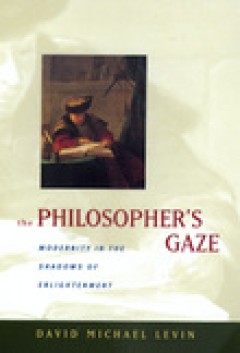
The Philosopher's Gaze: Modernity in the Shadows of Enlightenment
David Michael Levin's ongoing exploration of the moral character and enlightenment-potential of vision takes a new direction in The Philosopher's Gaze. Levin examines texts by Descartes, Husserl, Wittgenstein, Nietzsche, Heidegger, Benjamin, Merleau-Ponty, and Lévinas, using our culturally dominant mode of perception and the philosophical discourse it has generated as the site for his critical…
- Edisi
- -
- ISBN/ISSN
- 0520217802
- Deskripsi Fisik
- ix + 493 pg.; 23,5 cm.
- Judul Seri
- -
- No. Panggil
- 190 LEV p
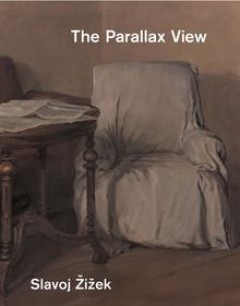
The Parallax View
The Parallax View is Slavoj Žižek's most substantial theoretical work to appear in many years; Žižek himself describes it as his magnum opus. Parallax can be defined as the apparent displacement of an object, caused by a change in observational position. Žižek is interested in the "parallax gap" separating two points between which no synthesis or mediation is possible, linked by an "impos…
- Edisi
- -
- ISBN/ISSN
- 0262240513
- Deskripsi Fisik
- 429 pg.; 28 cm.
- Judul Seri
- -
- No. Panggil
- 199.4973 ZIZ p

Cultural Memory in the Present
- Edisi
- -
- ISBN/ISSN
- 0804736324
- Deskripsi Fisik
- xix + 282 pg.; 28 cm.
- Judul Seri
- -
- No. Panggil
- 193 HOR c.a
- Edisi
- -
- ISBN/ISSN
- 0804736324
- Deskripsi Fisik
- xix + 282 pg.; 28 cm.
- Judul Seri
- -
- No. Panggil
- 193 HOR c.a
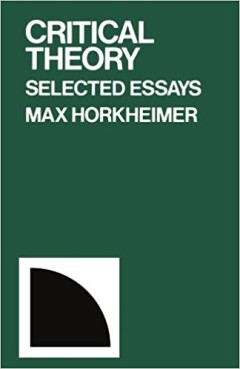
Critical Theory: Selected Essays
These essays, written in the 1930s and 1940s, represent a first selection in English from the major work of the founder of the famous Institute for Social Research in Frankfurt. Horkheimer's writings are essential to an understanding of the intellectual background of the New Left and the to much current social-philosophical thought, including the work of Herbert Marcuse. Apart from their histor…
- Edisi
- -
- ISBN/ISSN
- 0816492727
- Deskripsi Fisik
- xxi + 290 pg.; 28,5 cm.
- Judul Seri
- -
- No. Panggil
- 193 HOR c
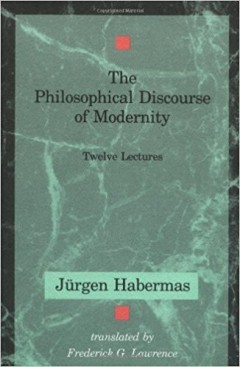
The Philosophical Discourse of Modernity: Twelve Lectures
The Philosophical Discourse of Modernity is a tour de force that has the immediacy and accessibility of the lecture form and the excitement of an encounter across, national cultural boundaries. Habermas takes up the challenge posed by the radical critique of reason in contemporary French poststructuralism. Tracing the odyssey of the philosophical discourse of modernity, Habermas's strategy is t…
- Edisi
- -
- ISBN/ISSN
- 0745608302
- Deskripsi Fisik
- xx + 430 pg.; 21 cm.
- Judul Seri
- -
- No. Panggil
- 190 HAB p

Analecta Husserliana Volume X: The Yearbook of Phenomenological Research: The…
- Edisi
- -
- ISBN/ISSN
- 9027709696
- Deskripsi Fisik
- xxiii + 367 pg.; 22,5 cm.
- Judul Seri
- -
- No. Panggil
- 142.7s WOJ a
- Edisi
- -
- ISBN/ISSN
- 9027709696
- Deskripsi Fisik
- xxiii + 367 pg.; 22,5 cm.
- Judul Seri
- -
- No. Panggil
- 142.7s WOJ a
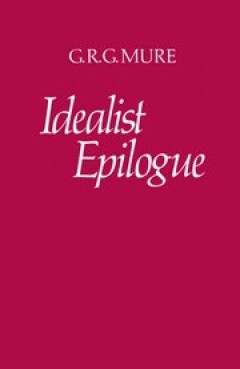
Idealist Epilogue
The author is not sure that his philosophical career merits an epilogue, but he had an itch to write one, and he thought of composing it in dialogue form, mainly for brevity's sake but also in the hope of imparting a touch of vitality. Yet writers of philosophical dialogue, except Plato, commonly leave one feeling that they would have served their purpose better by straight exposition, or by so…
- Edisi
- -
- ISBN/ISSN
- 0198245831
- Deskripsi Fisik
- 180 pg.; 22 cm.
- Judul Seri
- -
- No. Panggil
- 192 MUR i

Basic Weitings of Nietzsche
One hundred years after his death, Friedrich Nietzsche remains the most influential philosopher of the modern era. Basic Writings of Nietzsche gathers the complete texts of five of Nietzsche’s most important works, from his first book to his last: The Birth of Tragedy, Beyond Good and Evil, On the Genealogy of Morals, The Case of Wagner, and Ecce Homo. Edited and translated by the great Nietz…
- Edisi
- -
- ISBN/ISSN
- 0679783393
- Deskripsi Fisik
- xxiv + 862 pg.; 20,5 cm.
- Judul Seri
- -
- No. Panggil
- 193 BAS b
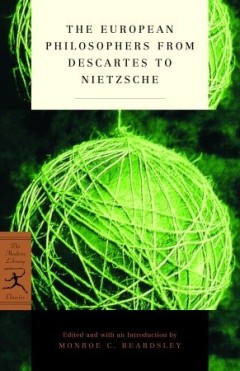
The European Philosophers From Descartes to Nietzsche
“Between the earliest and the latest of the works included here, we have two hundred and fifty years of vigorous and adventurous philosophizing,” Monroe Beardsley writes in his Introduction to this collection. “If the modern period can be only vaguely or arbitrarily bounded, it can at least be studied, and we can ask whether any dominant themes, overall patterns of movement, or notable ac…
- Edisi
- -
- ISBN/ISSN
- 0375758046
- Deskripsi Fisik
- xxiv + 909 pg.; 20,5 cm.
- Judul Seri
- -
- No. Panggil
- 190 EUR e
 Karya Umum
Karya Umum  Filsafat
Filsafat  Agama
Agama  Ilmu-ilmu Sosial
Ilmu-ilmu Sosial  Bahasa
Bahasa  Ilmu-ilmu Murni
Ilmu-ilmu Murni  Ilmu-ilmu Terapan
Ilmu-ilmu Terapan  Kesenian, Hiburan, dan Olahraga
Kesenian, Hiburan, dan Olahraga  Kesusastraan
Kesusastraan  Geografi dan Sejarah
Geografi dan Sejarah